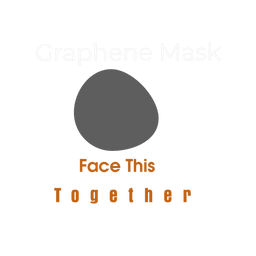One step further into a new normality.

What we do
Galloway Thornton Ltd undertakes the role to develop an ethical and sustainable business in the PPE market and, through targeted agreements with manufacturers, is able to sell masks across Europe since January 2021.
Graphene masks
The graphene anti-virus fibre cloth developed by the company uses plain full cross spunlaced non-woven fabric as the base material. Our company unique high-temperature planting technology is used to disperse graphene on the surface of the fibre so that the graphene material and the non-woven fabric are perfectly combined, and the graphene planted on the surface of the fibre does not move off. The graphene has the characteristics of a strong micro scalpel effect, super adsorption ability and a superconducting electron capture function. The product has a long validity period, resistance and duration, good antistatic properties and heat conduction function, which endows the product with excellent antistatic fire resistance and heat dissipation function.
Graphene anti-virus cloth has a broad application space and wider market prospects. Naturally antibacterial, graphene has been widely used in mask and protective equipment, air filters, space sterilisation, health protection products and other fields, functional products such as clothing and fabrics. It also can be used as an electrostatic and radiation protection material. It is an effective prevention and control weapon to cut off the transmission of viruses and helps to mitigate the epidemic situation.
FAQ
Q: From a consumer perspective, regardless of technology, our masks look very thin compared to others, including the 3M 1860 equivalent, which appears to be heavier and provide more protection. Is it true?
A: It is exactly the opposite: our masks, which are easier to wear, offer more protection and can be comfortably worn for longer periods of times. We combine and produce masks with the highest levels of protection and ventilation. For example, the cotton used in the 3M equivalent is cheaper to produce than the PPMB cloth we use; however, the air permeability is not as efficient.
Warmer weather is upon us, the lightness, breathability and sterilisation capabilities of our mask will outperform all other masks available today.
Q: Graphene masks are currently available in Europe and other countries with a lower price. Why are your masks better?
A: Graphene coating as well as synthetic graphene technology are used in the production of those lower-cost masks. The other masks only absorb carbon and are produced to a lower standard (GB2626) which is very different to our graphene negative ions mask that also have GB2626 but are produced with a higher and costlier standard, the UNE EN-149.

